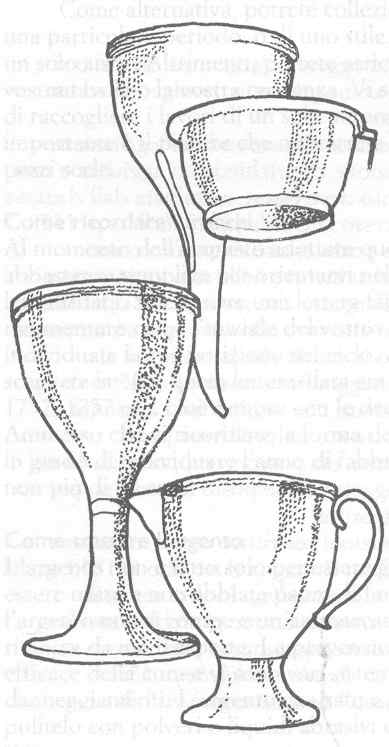A SMALL COLLECTION OF ANTIQUE SILVER |
| an article of Giorgio Busetto - www.silvercollection.it for ASCAS - Association of Small Collectors of Antique Silver |

|
click on images to enlargeAN UNUSUAL ITEM
|
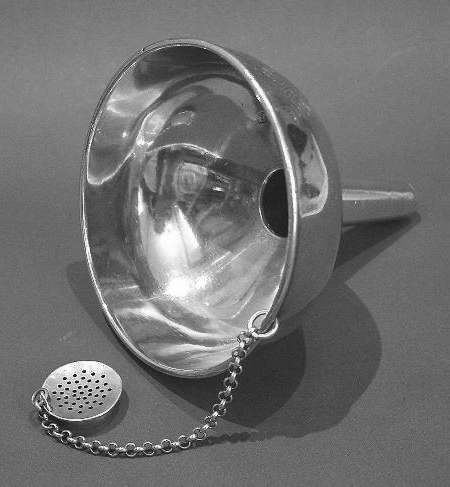 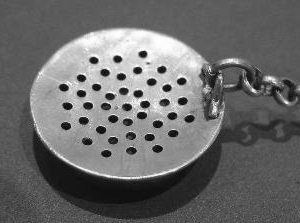 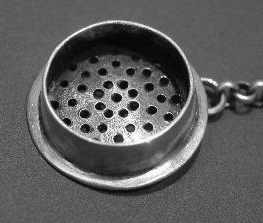 The one piece wine funnel has a removable pierced strainer, usually joined to the body by a small chain. |
The two pieces wine funnels have
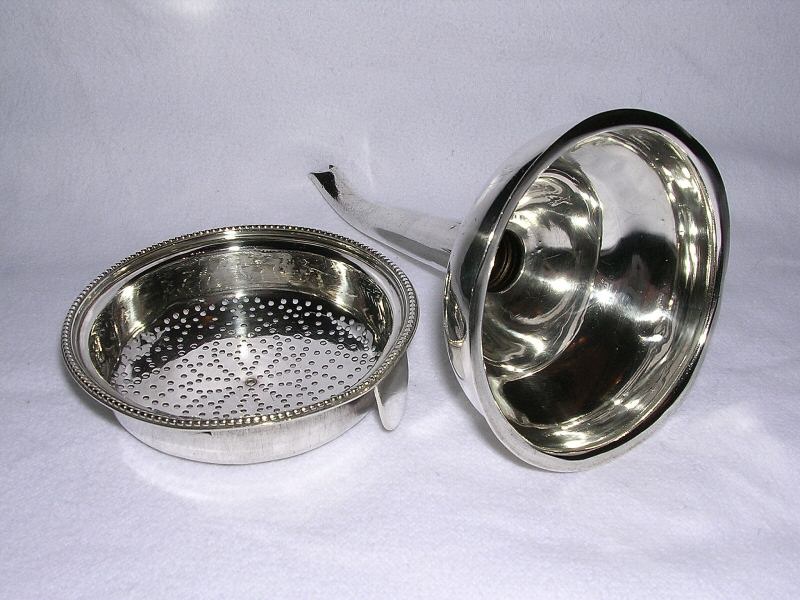 a pierced bowl and a body to contain it |
or
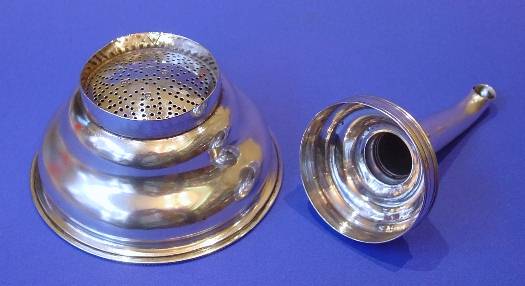 a removable spout to apply to the strainer |
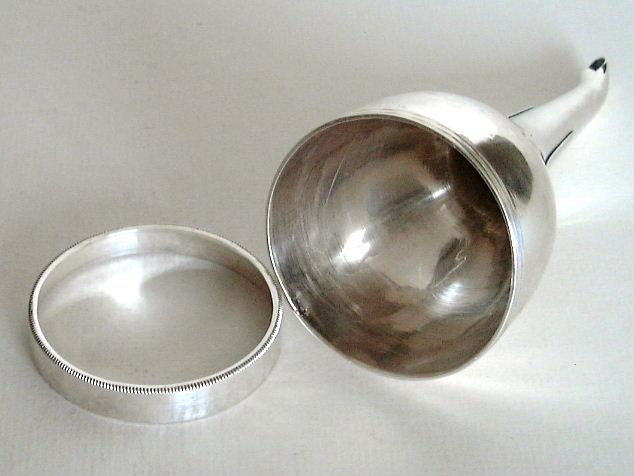 Alternatively the bowl may include a removable inner ring to retain a muslin straining cloth |
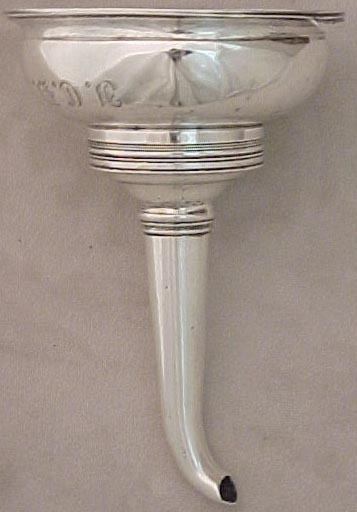 Examples of 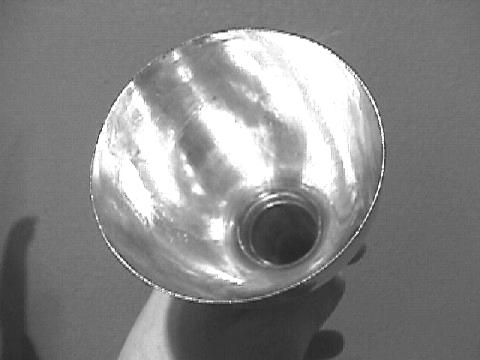 wine funnels made from 1770s and 1790s are usually plain or have a
reeded rim
wine funnels made from 1770s and 1790s are usually plain or have a
reeded rim |
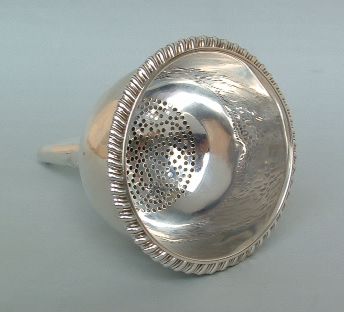 while later 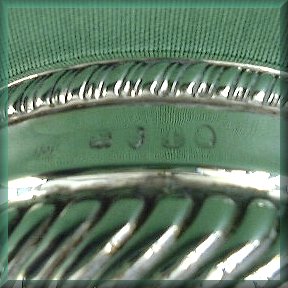 wine funnels are more elaborately decorated and have wider applied
foliate rims.
wine funnels are more elaborately decorated and have wider applied
foliate rims. |
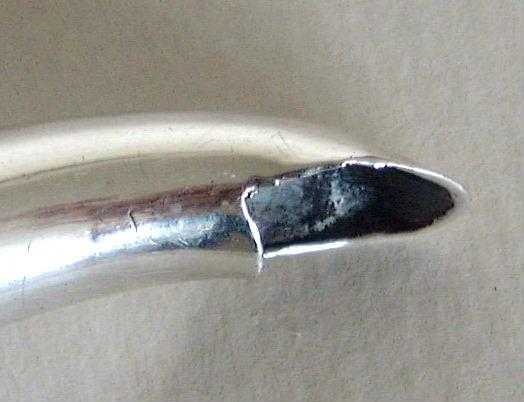 The end of 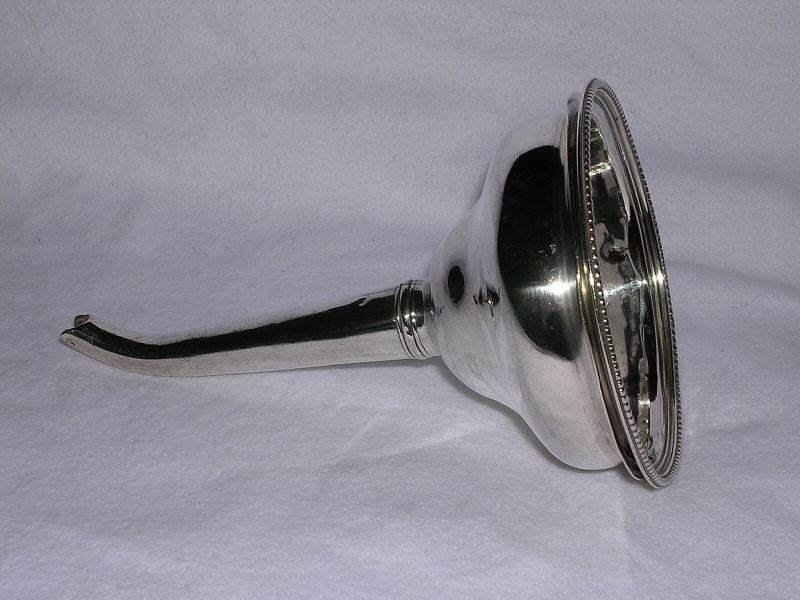 the spout is usually curved so that the wine would flow down the
side of the bottle
the spout is usually curved so that the wine would flow down the
side of the bottle |
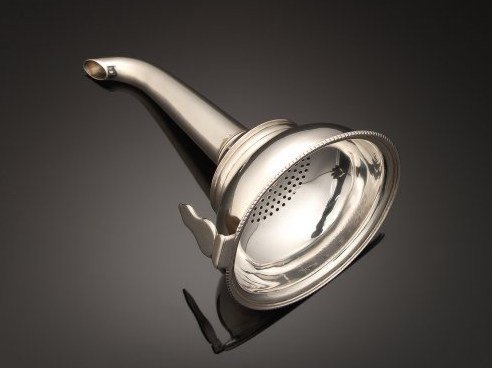 Often
there's a Often
there's a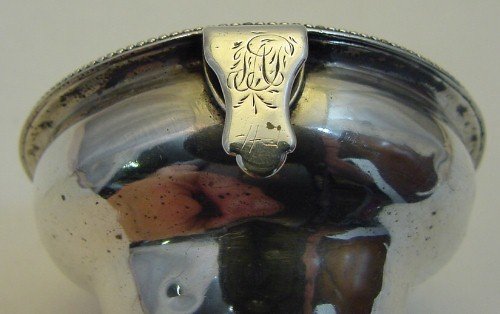 small hook on the side
small hook on the side |
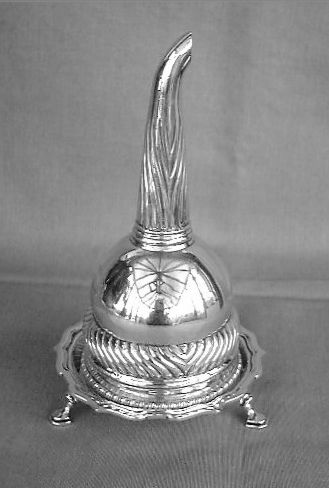 Sometimes wine funnels 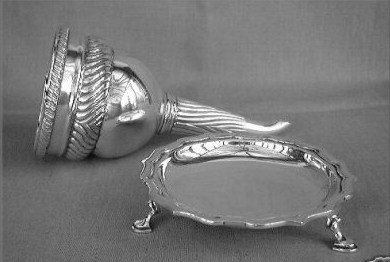 had a stand with domed centre and short legs
had a stand with domed centre and short legs |
The interior of the bowl was sometimes gilded.
A FEMALE SILVERSMITH'S WINE FUNNEL
| This George III silver wine funnel was
made in London by silversmiths Rebecca Emes and Edward Barnard,
circa 1815. The wine funnel is in two parts, the bowl (strainer) and
the main body with curved end of the spout. The bowl has gadrooned rim with a small shell on the side. The body has an engraved family crest in the shape of a lion with shield. The bowl is hallmarked RE over EB (silversmiths), duty mark (George III) and lion passant (sterling silver). The body is hallmaked lion passant, leopard's head crowned (London) and duty mark, while date letter is rubbed. Rebecca Emes, widow of John Emes, was an important silversmith of Regency Period and supplier of the Royal Goldsmiths, Rundell, Bridge and Rundell, the same firm that retailed Paul Storr's silver. She registered its first hallmark with Edward Barnard in 1808 and was active until c. 1829. This wine funnel is 5 in. high (cm. 12,5). |



|

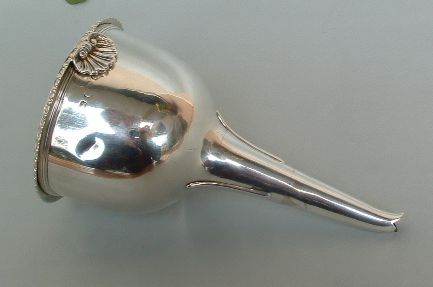 |

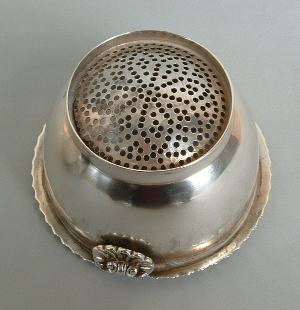 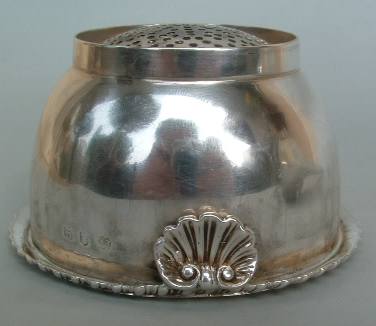 |

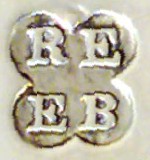 
|

Giorgio Busetto - © 2004 -
|
